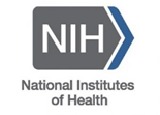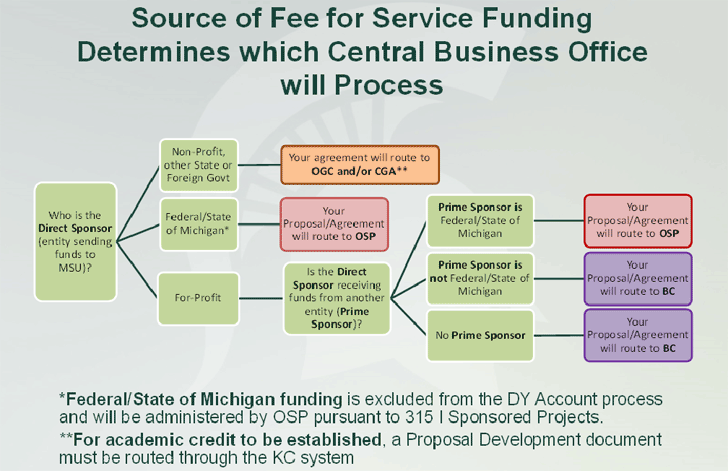Please enjoy our Spring 2018 issue of the SPA News on research administration topics expanding on resources developed, metrics, insight on internal processes, and highlights on sponsor and MSU changes impacting administration. We also announce our Spring 2018 Unit Research Administrator Spotlight Award recipients, an exciting recognition opportunity we are proud to sponsor.
We are here to provide operational and logistical support and share expertise through items like the KC biweekly updates, regular meetings to discuss reporting needs, and the Essentials of Research Administration (ERA) training. We strive to support you and MSU in managing the complex environment of implementing projects or programs while addressing today’s world of changing sponsor requirements and compliance needs.
We are thankful for the knowledge and time spent on processes and best practices from various groups and committees on campus. Collectively, we partner with campus in a variety of forums, including identifying training needs with the SPROUT Executive Committee that plays out in the ERA certification series and improving processes and communication through such groups as the Sponsored Programs Advisory Committee (SPAC). We are looking for a few new members and a call for nominations for the 2018-19 SPAC representatives will be sent to college research deans soon. If you are interested in being nominated, please let your college research dean know. More information can be viewed at: https://www.cga.msu.edu/PL/Portal/DocumentViewer.aspx?cga=aQBkAD0AMwA0ADAA.
For suggestions for future content or feedback on this issue, please contact Jennifer Lafferty, stumpje1@osp.msu.edu or me, reighley@osp.msu.edu. Authors or contact information have been included in each article for topic-specific questions. My appreciation is extended to the authors.
Twila Fisher Reighley, Assistant Vice President for Research and Graduate Studies

The Department of Justice (DOJ) offers funding opportunities on an array of topics ranging from grants to support a specific purpose (e.g. crisis intervention for victims of domestic violence), or grants related to public safety in general (e.g. creating a technical assistance resource for state, local, and tribal law jurisdictions to access via mobile app). Each DOJ solicitation contains detailed information regarding eligibility and application requirements. Solicitation requirements can change from year to year, so it is very important to read your solicitation, and to contact the Office of Sponsored Programs (OSP) as soon as possible to get them involved early in the process.
Within our KC system, it is important to understand that all DOJ proposals use “US Dept of Justice” as the Sponsor. DOJ has many offices within it (e.g. National Institute of Justice [NIJ], Federal Bureau of Investigation, Bureau of Justice Assistance, Office on Violence Against Women), but Sponsored Programs does not keep track of DOJ funding by office. If a department would like this information tracked, a note with the specific DOJ office can be added on the Abstracts and Attachments tab of the Proposal Development document.
There are also DOJ office-specific forms required at the time of application submission that OSP regularly updates. For example, NIJ requires the Financial Management and System of Internal Controls Questionnaire to be a completed document within the proposal, while the Office on Violence Against Women (OVW) requires a completed Financial Accounting Practices document within the proposal. Please contact your Proposal Team as soon as you are certain that a proposal will be submitted to a DOJ office, and we can assist you with any questions you may have regarding these forms.
For additional information on forms, tips and to find open solicitations, please visit the Sponsor Information page for DOJ on our website.
While these details may seem a bit overwhelming and burdensome, they are important for compliance and fulfilling DOJ requirements.

We just finished the first few NIH standard deadlines using the new Forms-E proposal packages. Overall, we found that the new form set did not cause many issues, and we even submitted fewer changed/corrected applications than typical!
As we set our sights on the June and July deadlines, we wanted to provide you with a few of our “lessons learned” to help you with your next proposal submission.
New for Forms-E
- Please keep in mind the new PHS Human Subjects and Clinical Trials Information form is REQUIRED even if your project does not involve human subjects. In these instances, please indicate NO to the human subjects question on this form and attach it in the user attached forms panel of KC.
- If you have any questions or are not sure what fields are pertinent to your project on the PHS Human Subjects and Clinical Trials Information form, please refer to our guide. The flow chart and tables walk you through the form based on the study conditions.
- NIH suggests applicants combine multiple studies in a single study record. If the studies each have a distinct protocol, then it is certainly appropriate to include multiple study records. Combining studies will not make your proposal non-compliant, and when in doubt NIH says “be a lumper not a splitter”!
- Please remember to check the solicitation expiration dates. Most solicitations from FY 16 and 17 have now expired. The new reissued parent FOA’s have titles indicating “clinical trials not allowed” or “clinical trials required,” each with a different announcement number. Please be sure you are selecting the appropriate opportunity in the S2S tab.
NIH Resources

NIH has several resources available to help you determine if your project includes a clinical trial. You may also be interested in reviewing example case studies that meet or do not meet the definition of a clinical trial. If you are still not sure if your project meets the definition of a clinical trial, please contact the MSU Human Research Protection Program (HRPP) office at (517)355-2180.
Tips and Tricks

- The PHS Human Subjects and Clinical Trials Information form is a fillable PDF, which means it does not support rich formatting. This is intended to help data flow between eRA Commons and ClinicalTrials.gov in the future. What this means for you is the form cannot support specials characters, such as Greek letters, smart quotes, or em-dashes.
- Don't forget to select the budget type on the S2S tab in KC. The type of budget is not automatically selected for you. If the R&R budget or PHS modular budget is not selected prior to route on the S2S tab, the PD will need to be recalled and updated before OSP can submit.
- Please keep an eye on the length and content of attachment file names. Files names containing special characters or more than 50 characters will cause an error!
If you or someone you know is not subscribed to the SPA/OSP/CGA listserv, but is interested in up-to-date information about research administration (e.g. trainings, technology and systems updates, sponsor information, Kuali Coeus Updates, SPA Newsletter), please use the following instructions to sign-up. To subscribe or unsubscribe to the listserv, follow this link: SPONPRGMS-OSP-CGANEWS@LIST.MSU.EDU, click on the “Subscribe or Unsubscribe” option indicated in the red box from the screenshot below, and then follow the instructions on the next screen.

Instructions are also available on our website here: Join/Withdraw from SPA/OSP/CGA List Serv, or you may send an e-mail to listserv@list.msu.edu with the words "subscribe SPONPRGMS-OSP-CGANEWS" or "unsubscribe SPONPRGMS-OSP-CGANEWS" as the first line in the body of the message.
MSU's research administration offices of Sponsored Programs Administration (SPA), Office of Sponsored Programs (OSP), and Contract and Grant Administration (CGA) encourage excellence and exemplary service modeled through The Spartan Experience by recognizing professional contributions and quality of service through the Research Administration (RA) Spotlight recognition.
We have completed the third award nomination and review process and received several nominations for strong applicants who exhibit qualities of a good research administrator, with commitment to quality, excellence, and exemplary service. The Recommendation Panel, which included two faculty (from the Council of Research Deans and Sponsored Programs Advisory Committee), a former Spotlight recipient, and two SPA/OSP/CGA staff, selected the two individuals below to receive this award. They are recognized with a plaque and a financial token of appreciation.

Kathleen has 32 years of service at MSU, and currently oversees the business functions of her department including pre and post award administration, financial, and personnel actions. She stated, "Each year our department gets a little bigger. I learn a little more and am amazed at how much we all accomplish together."
What do you enjoy most about your job here? "The best part about my job is being part of a talented and dedicated work team. Our administrative staff bends its efforts every day to manage the behind the scenes business that makes proposals and research projects happen. We diligently work with multiple contacts on campus ranging from OISS, OSP, CGA, Export Control, HR, IT Services, Accounting, and many other departments to support the success of our center, its people, and its projects. The faculty members are passionate about their research and they bring our center opportunity and new research adventures that stretch CGCEO’s potential and outreach. Our students and visiting scholars are more transient but during their time at CGCEO they truly leave our center more enriched. Ultimately, it takes all of us working together – researchers and support staff and technicians and visiting scholars and students – to support every proposal and project so that great research can be achieved. CGCEO’s research projects stretch across Michigan and across the globe. It’s a joy to be part of something so big and know that I am a part of a team that makes it happen."
What advice do you have for new research administrators? "'Know your purpose, grow to your maximum potential, sow seeds to benefit others.'1 I have that written on a sticky note attached to my computer. I read it every day. When the ink on the sticky note fades, I write it again and reattach it to my computer. As a new research administrator you are part of the University wide team that advances MSU as a world leader in research. Spartans literally change the world. Find the niche that best fits you and gives you a sense of accomplishment and purpose. If the first place you land doesn’t meet that need – keep looking. Research is a big field with plenty of opportunity. You owe it to yourself to find the best place for you. Once you get there you will be your most productive and content. Learn all you can, grow all you can, strive all you can. You have the potential to do great things, so find your awesome. You will then naturally challenge yourself to seek awesome 2.0 and more. Along the way, lift up as many people as you can. Lift them up in small ways like saying thank you, and in bigger ways like giving them opportunities for professional growth, or by managing a research project that will directly touch the lives of strangers you’ll never meet. Your work benefits people every day in your office, across campus, and across the world. So welcome new research administrator, and know that you are a vital part of the University wide team that goes big."


Marcy has nearly 29 years of service at MSU. When asked to tell us a little about herself, she stated, "after I received my PhD in 2005, I received a NSF grant as the lead PI. It allowed me to work through the details of managing a grant from the faculty perspective. This experience has been invaluable as I help college faculty work through the details of their own projects.” In addition to directing the research office and performing research administrator duties, Marcy also does the following things related to research: engages in new initiatives including monthly meetings with pre-tenure scholars and post-tenure fellows, participates in research roundtables, oversees the Seed Grant program, monitors her college’s RCR training requirements, oversees IRTL graduate assistantships, and more.
What do you enjoy most about your job here? "I enjoy helping people accomplish the things that are important to them so I love helping researchers (faculty and students) plan and submit their research projects and serving as a resource to faculty, staff, and students for research administration at MSU."
What advice do you have for new research administrators? "Don't limit yourselves. Take classes, earn advanced degrees, take advantage of all the things MSU has to offer. Be open to new experiences and training."

Thank you Kathleen and Marcy for playing an integral role in advancing MSU’s research mission and for leading by example! We greatly appreciate your dedication and hard work.
Stay tuned for another chance to nominate your favorite research administrator for the RA Spotlight Award this fall! Please contact Katie Winkler at ashbau10@osp.msu.edu with any questions.
Retaining proposal documents and having a clear understanding of what was "stated in the proposal," enables MSU to comply with sponsor regulations. With a copy of the final proposal, the Office of Sponsored Programs (OSP) Contract Teams can efficiently negotiate with the sponsor and confirm regulatory requirements, which can speed up the process of issuing a MSU account number.
Determining Which Central Business Office Processes Fee for Service Funding
- Who is the Direct Sponsor (entity sending funds to MSU)?
- Non-profit, other state or foreign government
- Your agreement will route to OGC and/or CGA. For academic credit to be established, a Proposal Development document must be routed through the KC system.
- Federal/State of Michigan: funding is excluded from the DY Account process and will be administered by OSP pursuant to 315 | Sponsored Projects.
- Your Proposal/Agreement will route to OSP
- For-Profit
- Is the Direct Sponsor receiving funds from another entity (Prime Sponsor)?
- Prime Sponsor is Federal/State of Michigan: Your Proposal/Agreement will route to OSP
- Prime Sponsor is not Federal/State of Michigan: Your Proposal/Agreement will route to BC
- No Prime Sponsor: Your Proposal/Agreement will route to BC
The researcher’s proposal becomes MSU’s institutional record of what was proposed to the sponsor. These documents identify the specific focus of the research efforts, general and specific program obligations, and assist those responsible for managing the daily project activities and related costs. It is a record of programmatic and requested financial committed efforts – a record of dates, dollar amounts, and project technical descriptions. It is the “launching off” point for a successful award – it is here where the OSP Contract Teams confirm the submitted proposal statement of work is in keeping with what was included in the award.
Many times obtaining a copy of the final proposal is not difficult when it is submitted through shared electronic systems. Examples of these systems are the National Science Foundation (NSF) “Fastlane” and National Institutes of Health (NIH) “eRA Commons”. These submitted proposals can be extracted from the online systems.
However, there are other sponsors that do not have a shared electronic proposal system. For example, proposals to the Michigan Department of Natural Resources and to the Spencer Foundation are submitted by the researcher and not OSP. Therefore, only the researcher has the ability to download the proposal and retain the institutional record. A similar scenario is when MSU’s researcher submits a Subaward proposal to another institution to carry out a portion of the larger project. In these cases, it’s the responsibility of the researcher and their department to provide OSP a copy of the final proposal. When MSU is the subawardee, OSP considers the final proposal to be what MSU has submitted to the Direct Sponsor. For SBIR/STTR or Multiple PD/PI submissions, OSP needs the full proposal that was submitted to the Prime Sponsor.
Please take care to include proprietary or privileged Information in the proposal only when it is necessary to convey an understanding of the proposed project. This information should be clearly marked in the proposal. Some sponsors forbid the inclusion of proprietary or privileged information in the proposal or provide specific instructions for including the information. For example, NSF suggests a label such as, "The following is (proprietary or confidential) information that (name of proposing organization) requests not be released to persons outside the Government, except for purposes of proposal review and evaluation" and require that the proposal cover page be marked to indicate the inclusion of this sensitive information. NSF states that while they will make every effort to prevent unauthorized access to such material, the agency is not responsible or in any way liable for the release of such material. It might be difficult for the researcher to confirm that they haven’t included this information in their proposal. The good news is that researchers have MSU Technologies Office (MSU-T) as an excellent resource to help them. MSU-T can help the researcher identify such proprietary or confidential items that should be marked in the proposal and can assist the researcher with protecting such information (e.g. filing invention disclosures, negotiating an intellectual property, non-disclosure or technology transfer agreement).
In summary, retaining proposal documents and having a clear understanding of what was stated in the proposal, helps MSU comply with sponsor regulations, and may help speed up contract negotiation and account setup. Please work with OSP so that a central copy can be available when the sponsor funds your project “as stated in the proposal”.
In our Fall 2016 newsletter, we introduced a new account option for fee-for-service activities. In that article, we provided basic information and links to help understand when these accounts could be useful to you. Since then, CGA and MSU Business-CONNECT have been involved in many conversations across campus in relation to the management of fee-for-service activities. Based on those discussions, the following diagram was developed to help clarify the approval path for agreements/proposals routed through the KC system.

If this is your first time hearing about fee-for-service activities in academic settings, these are generally service projects that include the following criteria:
- An external client requested deliverable
- Completed using known practical applications of standard procedures and established theories, methods, and standard experiments using special or unique MSU research capabilities.
- Normally charge a set fee according to a published rate schedule routinely charged to all potential customers
- Use off-the-shelf tools
- Utilize established protocols
Fee-for-service work does not require original, creative, or scholarly analyses or non-standard interpretation of data sets by MSU faculty, staff or students engaged in the work. Work requiring those types of analyses will continue to be considered sponsored projects, subject to the guidelines in the Manual of Business Procedures Section 315.
What Accounts Should I Be Using for Fee-For-Service Activities?
Whether you are preparing a new fee-for-service agreement, or currently have RG or departmental accounts (DS, DN, etc.) that support this type of activity, it may be more appropriate to account for some of them in a fee-for-service (DY) account. Some units have already begun converting to this type of account to better track and manage these types of activities.
Once a request to establish a DY account is approved by CGA, and an FSAO is approved (see Fall 2016 newsletter, or links below for more information), it offers the users flexibility to engage in the fee-for-service activity as a self-directed operation. DY accounts also allow for tracking of academic credit by routing agreements centrally, and linking the revenues received to an associated Institutional Proposal (IP). Similar to an RG account, multiple IPs can be associated with a single DY account if the related activities are appropriate.
When your unit receives a check that you identify as funding for an existing sponsored research account in KFS (RC or RG account), the check should be forwarded to Contract & Grant Administration (CGA) in Room 2 of the Hannah Administration Building. Prior to forwarding, should you have questions regarding the check, please contact CGA's Cash Management Group (cashmanagement@cga.msu.edu), who is responsible for depositing revenue for RC and RG accounts. Please include as much information as possible with the check (agreement number, account number, invoice number, PI, etc.) to assist in the proper allocation of the payment in the accounting system.
If your department receives payment for a sponsored research award before a KFS account number has been finalized by CGA’s Awards Group, you should still forward the check(s) to us. Please include the KC Proposal Development and/or the Institutional Proposal number(s) for identification. Once received in CGA, we may request additional information from the department and/or OSP via email before the check is deposited into CGA’s holding account. When the KFS account has been set up, the Cash Management Group will distribute the funds to the account via a Distribution of Income and Expense document in KFS.
If your department is notified by a sponsor that a payment has been sent and you have not received it, please contact us. CGA logs all checks received and can readily search for it by the check number, amount, or payee to verify its receipt.
Please do not hold on to payments any longer than necessary. This becomes especially important when the check notes that it will be voided if not cashed in a certain number of days.
At SPA/OSP/CGA, we strive to provide excellent customer service in all stages of research administration, from proposal development to the final closeout of an award. Our client surveys provide us with valuable feedback that we use to assess the quality of our services and identify areas for improvement.
From July 1, 2017 through February 28, 2018 we received a total of 493 unique survey responses from individuals who worked with OSP on a proposal submission. Overall, 91% of respondents expressed satisfaction with OSP’s pre-award services. In July 2017, we added a question to the proposal survey to gauge user satisfaction with the Kuali Coeus system, specifically. During the time period shown, 71% of respondents indicated satisfaction with the KC system. We are paying close attention to these results and continuing to work on improvements to system functionality.
- 97% were helped in a timely manner
- 95% were provided with useful/accurate information
- 98% were treated courteously
- 96% were satisfied with the interaction
- 71% were satisfied with KC
Between July 1, 2017 and February 28, 2018, we received 143 unique responses from participants interacting with personnel from the OSP and CGA on award negotiation and account setup activities. 91% of responses indicated satisfaction with the award negotiation and account setup processes.
Our CGA survey is sent out quarterly to a sample of individuals who worked with CGA on post-award services. Between July 1, 2017 and December 31, 2017, we received responses from 49 individuals who worked with CGA on post-award services. 92% of responses indicated satisfaction with the specific areas addressed in the post-award survey questionnaire.
The CGA post-award survey also asked participants to rate their overall satisfaction with CGA’s post-award services. 97% of individuals that responded during this time period replied that they were either extremely satisfied or somewhat satisfied with CGA’s services.
In addition to the standard survey responses, we received many comments, the majority of which were positive. Comments are reviewed by team managers and members of the OSP and CGA leadership teams each month in order to recognize exceptional service, address concerns, and improve our services. We would like to sincerely thank all of you who participated in our surveys! Your feedback is very much appreciated. Questions on the survey results can be directed to Erin Schlicher at schlic11@osp.msu.edu or Twila Reighley at reighley@osp.msu.edu.
SPA/OSP/CGA, in collaboration with SPROUT and an extensive network of MSU staff involved in pre-award, post-award and compliance aspects of research administration, provide the latest news, training, resources and information available to campus:
Essentials of Research Administration (ERA) Series
The Essentials of Research Administration (ERA) series provides on-campus training and certification for research administrators and other support staff who have responsibilities for research proposals, grants, contracts, pre- and post-award administration and related activity at Michigan State University.
Certification/Recertification Requirements:
- Initial Certification – Participants in the ERA program must attend all 5 ERA Cores plus a minimum of 3 ERA Electives within two calendar years to earn the ERA certificate. This initial certificate will be valid for two calendar years, beginning in the year the participants began attending ERA sessions. For example, if a participant attended the 5 Cores in 2018 along with 2 Electives in 2018 and the 3rd Elective in 2019, the initial ERA certificate will be valid for the 2 calendar years of 2018/2019 (through 12/31/2019).
- Recertification Requirements (Revised) – In order to maintain your ERA certification status, continuing education of 2 ERA Electives* is now required on an annual basis (after the initial certification period). To continue with the example from above, the participant would need to attend 2 ERA Electives in 2020 in order to recertify through 12/31/2020, and then continue to attend 2 ERA Electives every calendar year thereafter.
- Recertification for current ERA Certificate holders – If you have taken the 5 Cores between 2015 to present, with Electives along the way (or have taken the Cores before 2015 and are still up-to-date with your requirements), all certificates will be extended with a new valid-through date of 12/31/18. Beginning in 2019, all participants in the program will need to fulfill the revised recertification requirements of attending 2 Electives* every calendar year.
2018 Electives:
If you would like to expand your research administration knowledge, and earn credits for your ERA certification/recertification, please visit the ERA Registration Portal to browse the 20+ training sessions being offered between April and December of 2018! If a session you would like to register for is already full, please email Jennifer Lafferty at stumpje1@osp.msu.edu to be added to the waiting list.
ERA eLearning in D2L:
Our very first eLearning Elective on International Research is available in D2L! This course features 4 modules focusing on topics from the following offices and presented live Fall 2017: Accounting, Office of Sponsored Programs/Contract and Grant Administration (Complex Budgeting & Accounting), Export Controls & Trade Sanctions, Office of Risk Management and International Health & Safety. Each module features a video presentation and accompanying resources, along with quizzes/activities to assess participant understanding and retention of the information presented. If you would like to attend this virtual class (and earn ERA recertification credit), please contact Jennifer Lafferty (stumpje1@osp.msu.edu) and/or Shannon Lutz (lutzsha1@osp.msu.edu).
Kuali Coeus (KC) Training
We have added KC specific training courses to the ERA series through the Hands-on Budgeting and Proposal Development electives. For additional training resources, please view the following webpages:
- Job Aids & Videos – Includes job aids and videos on proposal and budget development, reporting and general information. Eight of the videos were recently updated with current content and corresponding system screenshots and demos!
- System Updates – System implementation updates (posted biweekly) providing tips, instructions, bug fixes, training opportunities, system outages and more.
Training Videos
SPA, OSP, and CGA have created training videos to assist with the wealth of information on research administration that can be accessed by MSU faculty and administrators. The following videos are available, and can also be found on Kaltura MediaSpace: Making it Real, Part I (Making it Real, Part II will be available in May 2018!); Account Explorer (AE) Training Videos; International Subawardees Training Videos